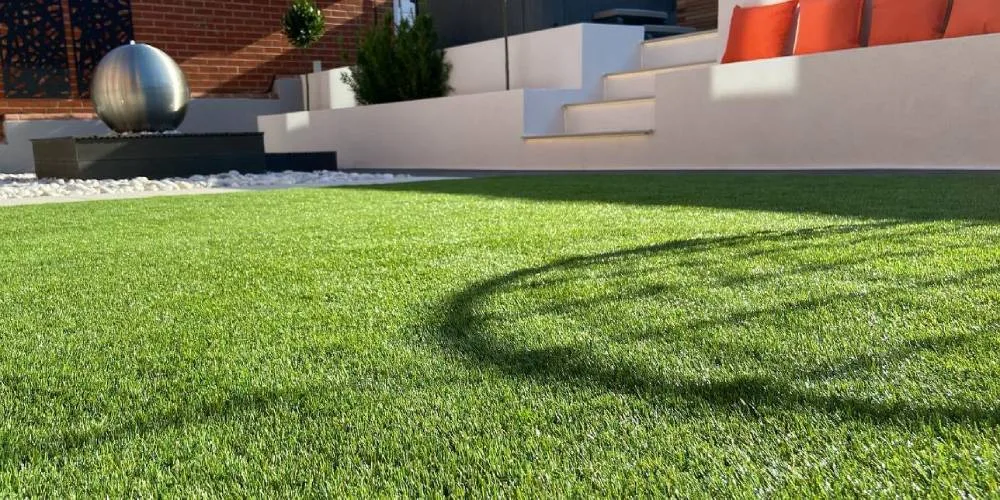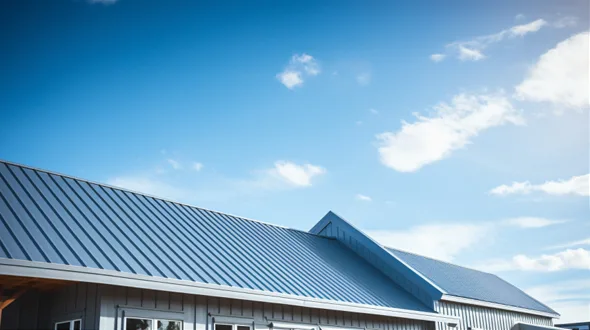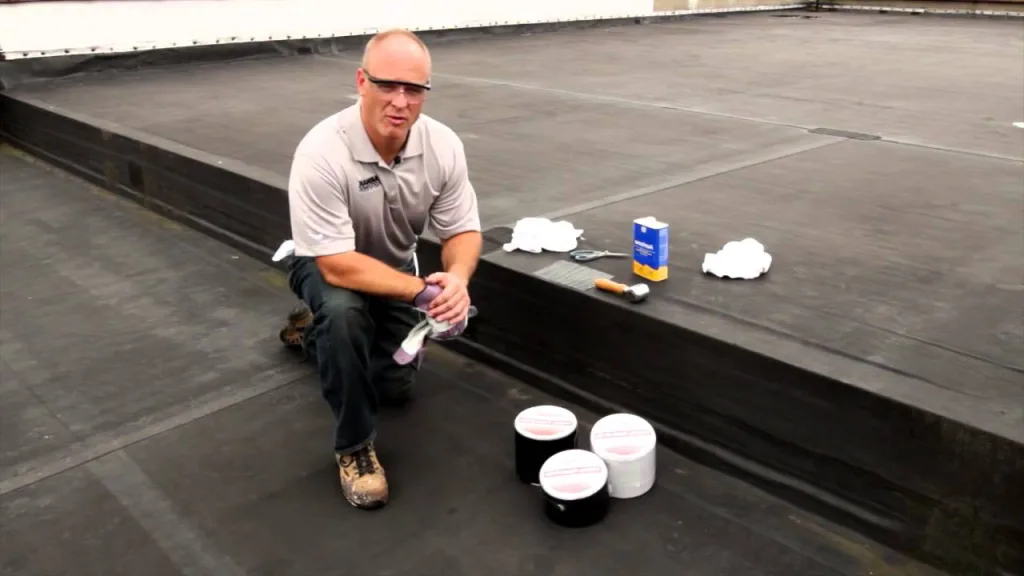Did you know that butyl tape can withstand extreme weather conditions while keeping surfaces watertight for years? From industrial sealing to automotive repairs, butyl tape is a game-changing adhesive solution that quietly holds our world together—literally. Today, we’re peeling back the layers of this versatile tape, exploring what it’s made of, where it excels, and why it’s trusted by professionals and DIYers alike. Whether you’re looking for waterproof butyl tape for construction or butyl foil tape for heavy-duty sealing, this guide will help you understand its capabilities and make smarter choices when buying it.
What is Butyl Rubber Tape?
Butyl rubber tape is a pressure-sensitive adhesive tape made from a synthetic rubber compound known as butyl. This rubber, celebrated for its remarkable elasticity and resistance to aging, provides the tape with unique properties such as waterproofing, flexibility, and superior adhesion. Typically, butyl tape consists of a tacky butyl layer coated onto a durable backing material like foil, fabric, or plastic. The adhesive used can range from acrylic adhesive, silicon adhesive to rubber adhesive, depending on the application.
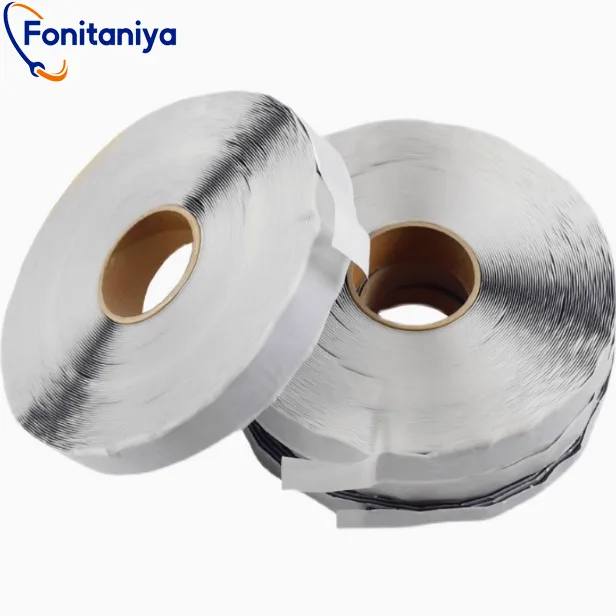
What is the Working Condition of Butyl Tape?
Butyl tape performs exceptionally well in demanding conditions. It adheres effectively even at temperatures as low as -40°C and up to 120°C, making it a preferred solution for both extreme cold and scorching heat. This versatility allows it to function as a reliable sealant in construction, automotive, and industrial applications. Waterproof butyl tape, in particular, is a go-to product for roofing repairs, windows, and pipe sealing, where its ability to create impenetrable moisture barriers is unparalleled.
Surface Compatibility of Butyl Tape
One of the standout features of butyl tape is its ability to bond with a wide range of surfaces. Unlike many adhesives that struggle with irregular or non-porous materials, butyl tape sticks seamlessly to surfaces like metal, wood, glass, plastic, and concrete. Its tacky adhesive layer conforms to textures, filling gaps and crevices to create a strong, airtight seal.
This compatibility makes butyl tape particularly valuable in industries such as construction and automotive repair, where materials often vary in type and finish. For instance, when sealing a metal roof or repairing a vehicle’s glass panel, butyl tape adheres instantly without the need for primers or extensive preparation. In fact, even weathered or painted surfaces can benefit from its superior bonding capability. However, to maximize adhesion, cleaning the surface of dust, oil, or debris is always recommended.
Is Butyl Tape Waterproof?
Yes, butyl tape is waterproof and one of the most reliable solutions for sealing against moisture. Made from butyl rubber, it creates an airtight and watertight seal on surfaces like metal, glass, and concrete. Unlike other adhesives, it doesn’t crack, shrink, or lose adhesion when exposed to water, making it ideal for metal roofing, windows, and marine applications.
Its flexible, non-hardening nature allows it to adapt to surface movement while maintaining a strong seal. Whether sealing a leaky RV window, boat deck, or roof seam, waterproof butyl tape offers long-lasting protection, even in harsh weather or wet environments.
Common Types of Butyl Rubber Tape
Butyl Foil Tape (Aluminum Butyl Tape)
Butyl foil tape, sometimes referred to as aluminum butyl tape, is characterized by its durable aluminum backing. This reflective layer not only enhances the tape’s strength but also provides excellent resistance to UV rays and heat. It is commonly used for outdoor sealing tasks such as roofing repairs, HVAC duct insulation, and waterproofing around windows and skylights. The foil backing also makes it tear-resistant, ensuring longevity in harsh environments.
Putty Butyl Tape
Putty butyl tape takes on a soft, moldable form, which allows it to fill gaps and irregular spaces effortlessly. This type is ideal for applications requiring flexible, non-hardening seals, such as plumbing joints, RV window repairs, and industrial gaps where rigid materials might fail. Its pliability ensures that it conforms to uneven surfaces, maintaining its sealing properties for years without cracking or drying out.
Automotive Butyl Tape
Automotive butyl tape is specially designed for sealing car components, such as glass panels, headlights, and doors. This tape provides excellent vibration damping and weather resistance, essential for protecting sensitive vehicle parts from moisture and debris. Because of its ability to resist temperature fluctuations and environmental exposure, automotive butyl tape has become a trusted tool for car repair professionals worldwide.
Pros and Cons of Butyl Rubber Tape
Advantages of Butyl Tape
Butyl tape’s biggest advantage lies in its waterproofing properties. It forms a perfect seal that prevents moisture penetration, making it indispensable in roofing, plumbing, outdoor repairs, and even waterproofing an RV. Its temperature resilience ensures that it performs reliably in diverse weather conditions, from freezing cold to scorching heat. Unlike conventional adhesives, butyl tape does not harden over time. Instead, it remains flexible, allowing it to adapt to movements or vibrations without cracking. Its exceptional surface compatibility means it bonds with nearly any material, including glass, metal, wood, and plastic.
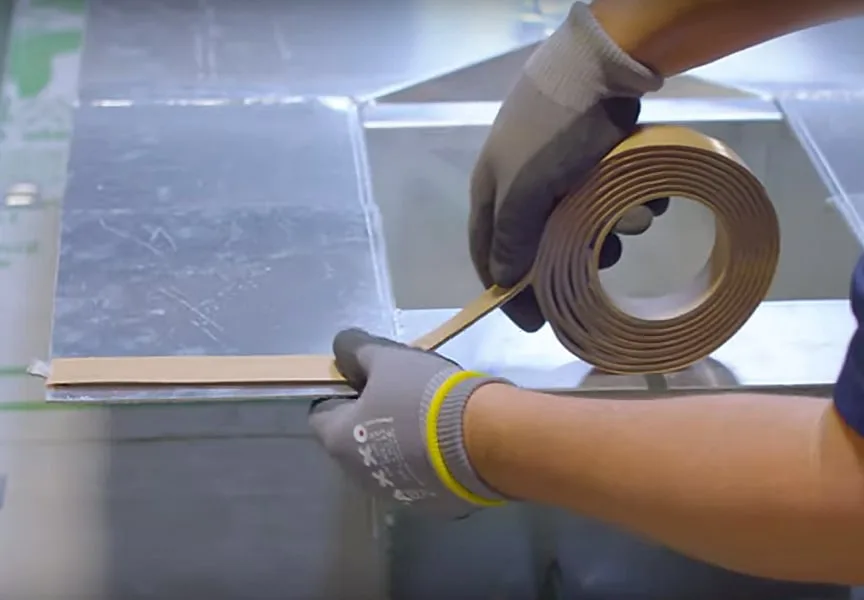
Disadvantages of Butyl Tape
Despite its benefits, butyl tape does have limitations. It is not ideal for applications requiring a rigid, structural bond because it remains tacky and flexible. Additionally, while it excels in sealing, it may not adhere perfectly to oily or dirty surfaces unless prepped carefully. Aesthetic applications might also present challenges, as the thick, tacky appearance of butyl tape is not always visually appealing for certain projects.
How to Buy Butyl Rubber Tape?
Buy Self-Adhesive Butyl Tape Only
When choosing butyl tape, it’s essential to select a high-quality self-adhesive version. Self-adhesive butyl tape offers easy application, eliminating the need for heat or liquid adhesives. Look for tapes that maintain consistent tackiness and conform to irregular surfaces effortlessly.
Choose the Right Thickness
Thickness is a critical factor when buying butyl tape. For general sealing tasks, tapes with a thickness of 1mm to 2mm often suffice. However, industrial or automotive applications may require thicker options for maximum strength and durability. Always match the tape thickness to the demands of your project to achieve optimal results.
Where to Buy Butyl Rubber Tape
Butyl rubber tape is widely available online, in hardware stores, and through specialized adhesive suppliers. Online platforms often provide competitive pricing, especially when buying in bulk. However, purchasing directly from trusted manufacturers, such as Fonitaniya Official Site, ensures access to high-quality tapes at factory prices. Wholesale options are often more cost-effective for large-scale projects, while smaller rolls can be found on reputable marketplaces like Amazon and Alibaba.
Conclusion
Butyl tape is a versatile, reliable solution for sealing, bonding, and protecting surfaces across industries. Whether it’s aluminum-backed butyl foil tape for outdoor repairs, putty butyl tape for industrial gaps, or automotive butyl tape for car repairs, its flexibility and durability make it a must-have adhesive. For over 15 years, Fonitaniya™ has been a leading provider of adhesive solutions, including premium butyl tapes designed to meet the most demanding requirements. Through continuous innovation, we bring specialty tapes that ensure strength, reliability, and peace of mind.
FAQs About Butyl Rubber Tape
What is butyl tape used for?
Butyl tape is commonly used for waterproofing, sealing joints, and repairing surfaces like roofs, windows, pipes, and cars.
Is butyl tape really waterproof?
Yes, butyl tape forms an impenetrable moisture barrier, making it one of the most reliable waterproofing adhesives available.
Can butyl tape withstand extreme temperatures?
Butyl tape remains effective at temperatures as low as -40°C and as high as 120°C, making it suitable for extreme environments.
Where can I buy high-quality butyl tape?
You can purchase butyl tape online, at hardware stores, or directly from manufacturers for bulk discounts and higher quality assurance.
What surfaces does butyl tape stick to?
Butyl tape adheres to metal, wood, plastic, concrete, and glass, providing a strong seal even on irregular or textured surfaces.

